Conducting business is a time-consuming endeavor that often leaves little space for leisure. But some forms of leisure can actually teach and inspire successful business practices. We’ve all heard the cliché that art imitates real life, and there are many qualities of the following films’ protagonists that should be emulated, but there are also many lessons to be learned about the complexity of business, the power of corporations and the dark side of success.
Follow along to see what we all can learn from these 10 great business films.
10. Citizen Kane (1941)
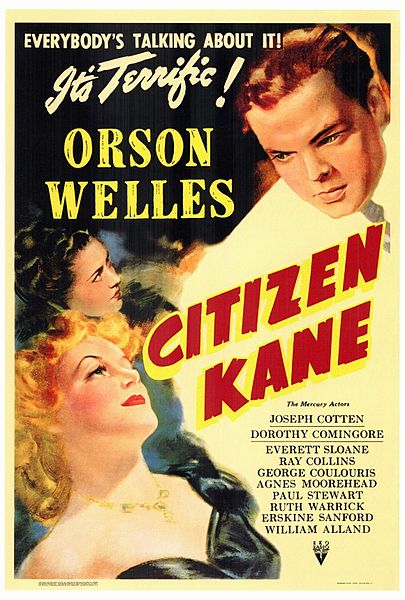
While it’s regularly touted as the best film in American history, what’s often overlooked by its cinematic innovation, stellar writing and enthralling storyline is the fact that Citizen Kane is a tale of a businessman. The film follows a newspaper magnate’s life through the eyes of his acquaintances, associates and the media that follow his every word, including his last one: Rosebud.
While building his empire, Kane cuts himself off from the rest of society. His lives in his own world, a compound dubbed “Xanadu,” in which he spends his last years alone.
Spoiler alert: At the end of the film, it’s revealed that “Rosebud” was the name of a sled from his childhood, suggesting that he longed for the innocence and happiness he once had as a boy.
Lessons learned: Success can often come at a price. While his devotion to his career propelled him to become an industry leader, it also left his life relatively empty. His passion and hard work are commendable, but his sacrifice of a personal life and meaningful connections with those around him makes his success seemingly worthless. Riches are the goal for many businessmen, but a fulfilling life should be the goal for everyone.
9. Wall Street (1987)

This gritty look into the lives of crooked stockbrokers leaves a bad taste in most viewers’ mouths. Wall Street follows a young broker’s obsession with his boss, his quick rise to power and his even quicker fall.
Bud Fox is a Jr. Stockbroker that tries to impress his corporate raider boss, Gordon Gekko, by collecting and offering insider information.
Spoiler alert: He suggests to Gekko a relatively cheap buyout of his father’s plant to profit off its expansion, but Gekko turns on Fox and plans to manipulate the company’s stock before dissolving the company and cashing-in its pension plan. This all results in both characters’ eventual arrests.
Lessons learned: The obvious lesson is the corruption of greed, but there are some positives to be gleaned from the film. One is the importance of persistence: The one thing that truly impresses Gekko is Fox’s persistence, which is evident in his streak of asking Gekko for work for 59 straight days. Another is based on Gekko’s famous line, “Sheep get slaughtered”: Although his practices were the epitome of immorality, his lack of conformity is a virtue that can lead many to success (without having to sacrifice their ethics).
8. Pursuit of Happyness (2006)
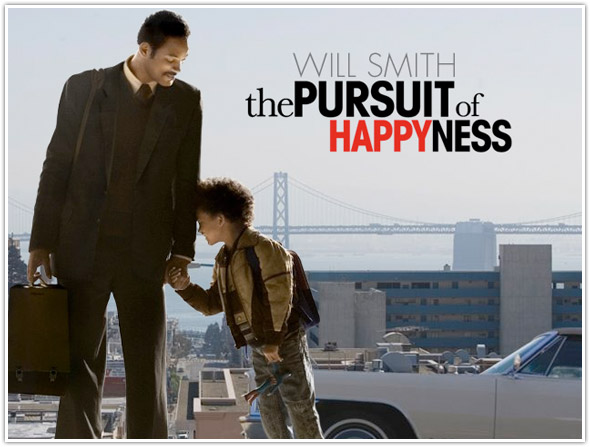
Speaking of persistence, few films display that virtue as well as 2006’s Pursuit of Happyness. In the film, Will Smith plays Chris Gardner, a homeless salesman who struggles to support himself and his young son. Gardner uses his wit to impress a stockbroker, who later offers him an internship. This internship pits Gardner against 19 others that are hoping to land the same single job that’s offered.
Spoiler alert: He wins the job, and like the real-life Chris Gardner, Smith’s character becomes a successful owner of a multi-million dollar brokerage firm.
Lessons learned: Other than persistence and determination, the film displays the importance of networking in business. Gardner’s success is owed, in part, to the professional connection he forged with a stockbroker while homeless, and the personal and professional connections we all form can one day spell success for us.
7. Office Space (1999)
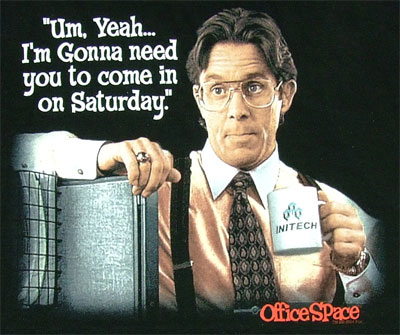
This hilarious look into the monotony of office life should be a wake-up call to some managers and small business owners.
The comedy follows Peter Gibbons and his office mates as they handle impending downsizing and layoffs. Peter is hypnotized to be careless, and this spreads to his work, where the corporate geniuses reward the slacker with a promotion while his diligent friends are smacked with pink slips. Peter revolts, bringing the company to ruins.
Lessons learned: Although this film represents a satirical exaggeration of the monotony of office life, it also highlights the importance of a rewarding and productive office environment. Peter and his friends are constantly tasked with meaningless work and pestered by their micromanaging boss, the infamous Bill Lumbergh. This leaves them disengaged, resentful and contributes to their layoffs. While Lumbergh is an over-the-top parody of bosses, his character flaws should display the office tension created when personalities and goals clash, and the printer scene should be a testament to how important quality office equipment really is.
6. The Social Network (2010)
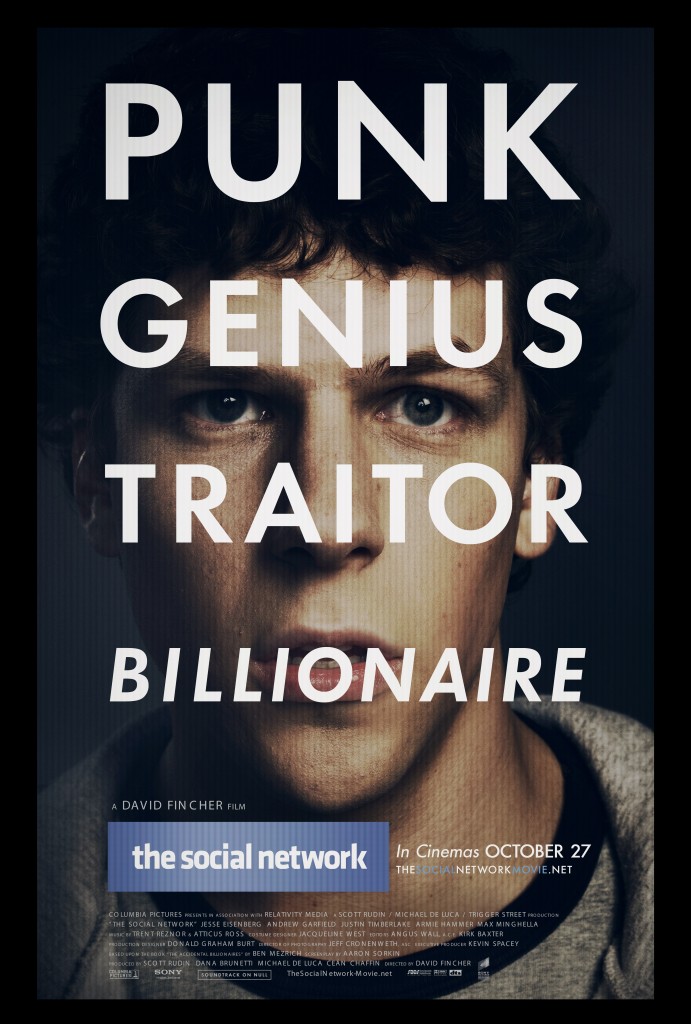
The Social Network follows the story of Facebook founder Mark Zuckerberg’s rise to a tech power. While many will argue the film’s accuracy, few can question its insight into a relatively new industry.
The film’s version of Zuckerberg is accused of stealing former partners Cameron and Tyler Winklevoss’ idea for a social website. In the process, Zuckerberg dilutes one of Facebook’s original partners’ share from 34% to .03%, and the original partner (who was also his college pal and first investor) sues Zuckerberg. Both prosecutions win settlements, and while he’s still very wealthy, Zuckerberg is left at the end virtually friendless.
Lessons learned: Like Citizen Kane, The Social Network cautions success and greed by relating them to loneliness; Zuckerberg betrayed those that first believed in him, and he pays the price both monetarily and personally. The film, however, also offers some positives that entrepreneurs can emulate. One positive is Zuckerberg’s patience: He holds off on monetizing his site in order to perfect his product. He also implements a fun office environment that attracts top talent with eccentric perks—a concept that is still fairly new. And this patience and environment is something that can definitely benefit entrepreneurs who run bustling startups in hopes of raking in early returns.
5. Thank You for Smoking (2005)
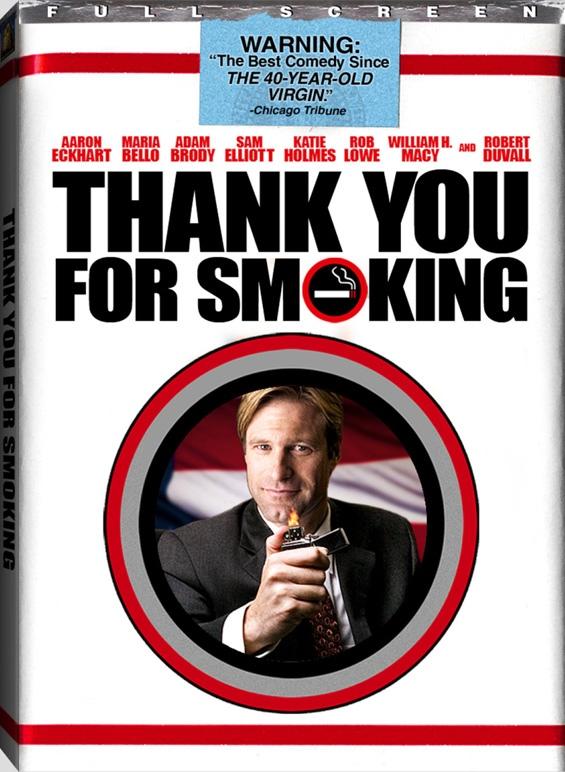
Thank You for Smoking follows the fictional story of a tobacco spokesman, Nick Naylor, as he attempts to justify both his industry and his profession to himself and his son. It’s an inside look into the connection between big business, big government and big media.
Spoiler alert: Naylor is kidnapped by a tobacco protestor, and he’s later betrayed by a seductive journalist he falls for. His son Joey convinces him to get over his depression and fight the good fight: defending corporations no one feels should be defended.
Lessons learned: One lesson should be most evident: Naylor’s blind devotion to his corporation and its shareholders fuel his corruption. Corporations should strive to benefit their shareholders, but not at the cost of their consumers’ wellbeing. It also presents a dilemma that many businesses face: peddling something that has demand and profitability but that is often construed as immoral. There is a positive that businesspeople should emulate, however, and that’s Naylor’s argument techniques. He never strives to be right; he only strives to prove his opponent wrong, an effective strategy for any negotiation.
4. Art & Copy (2009)
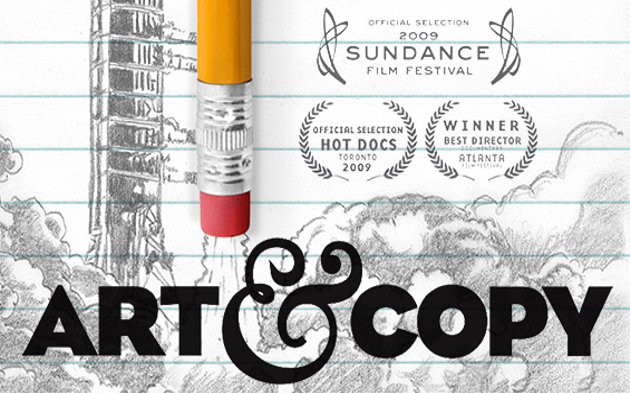
Art & Copy is an insightful look into the creative revolution of the 1960s that forever changed the advertising industry. It’s a must-see for a creative worker or for those with hopes of launching a media agency.
Before the 60s, ad agencies were run by Accounts people, the suits that kept clients happy and made billings rise. But Madison Avenue innovators (among them, Doyle, Dane, Berbach) changed all that by focusing on the creative side of advertising: Art and Copy. Typically separated, these innovators paired copywriters and art directors into teams and allowed them to take the reins with campaigns. This eventually led to the “lifestyle brands” and engaging advertisements we are now quite familiar with.
Lessons learned: Countless marketing and advertising tips can be gleaned from this documentary, so if you plan on launching a campaign, Art & Copy can be a great reference. It also emphasizes the power of creativity. Even more so than in advertising, creativity in business operations can drastically change the quality and quantity of what you produce. Don’t be afraid to change things up: You just may spark a revolution.
3. Indie Game: The Movie (2012)
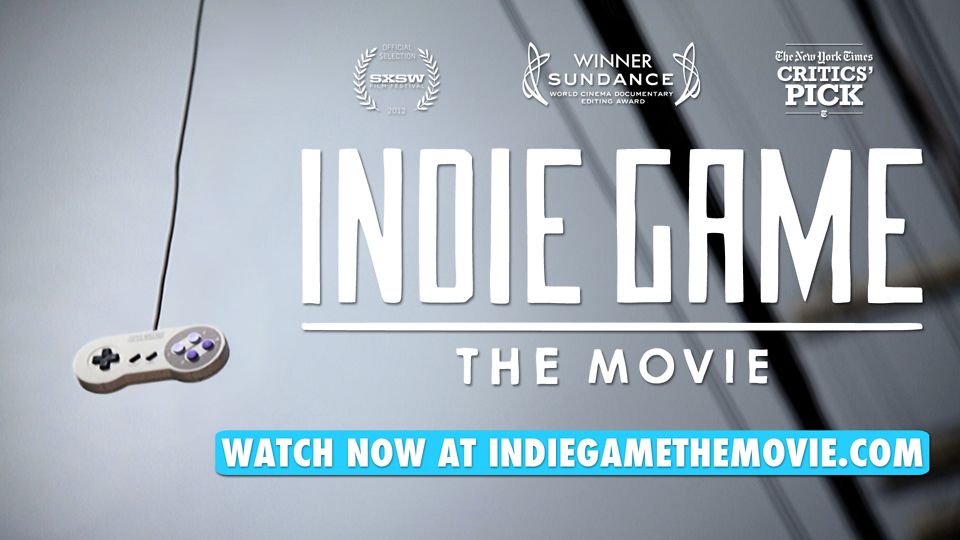
Indie Game is another look into the creative industry. It follows two indie game developers as they (nearly) singlehandedly create and release new games. But whereas Art & Copy follows an industry, Indie Games focuses on the creative process.
It delves into the sacrifice and devotion that these creative professionals endure in their work. The projects they work on consume and define their lives. And the possibility of failure constantly hangs over their heads.
Lessons learned: Creative work can sometimes be overlooked and devalued, but Indie Game shows just how hardworking and devoted these professionals can be. It should foster a new understanding and empathy for developers, artists and writers. It may even convince some employers to quit with the low-ball job offers.
2. Glengarry Glen Ross (1992)
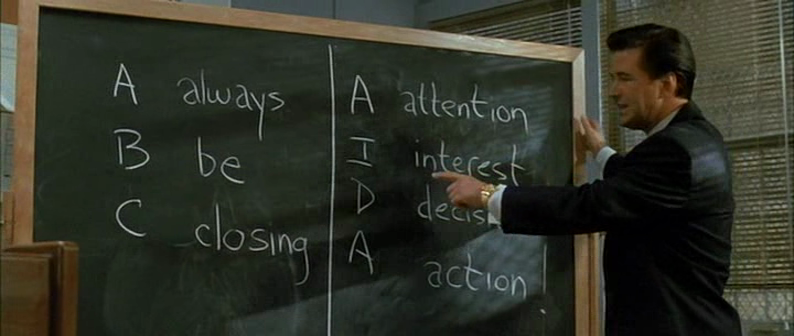
Arguably the quintessential sales movie, Glengarry Glen Ross follows a group of struggling real estate salesmen. The salesmen are confronted by a corporate “motivator” who offers incentives to increase sales. First prize is a new Cadillac. Second is a set of steak knives. “Third is you’re fired.”
This ultimatum sends the salesmen scrambling for good leads, and this leads to theft, bribery and eventual imprisonment.
Lessons learned: ABC: Always Be Closing. While this mantra is essential to sales, it could (and should) be applied to all walks of business life: Always have an end goal (a close), and forever strive toward it, whether it be a sale, landing a new job, getting ROI on a marketing campaign or anything else. Another lesson to take away is the power of incentives: the right incentives (like rewards for good work) boost your team, while the wrong ones (like punishment for failure) cause it to fall apart and pits team members against each other instead of encouraging them to work together.
1. Enron: The Smartest Guys in the Room (2005)
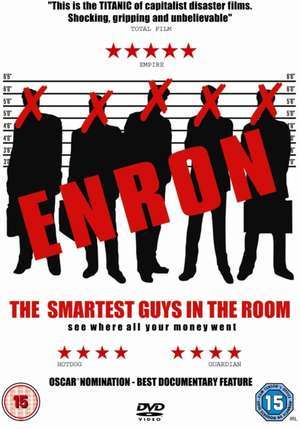
This documentary is an inside look into one of the largest corporate disasters in history. It follows the fall of Enron, which was the seventh largest U.S. company at the time of its demise. Enron’s top execs walked away with over $1 billion, while they left over 20,000 former employees jobless and without health insurance.
Lessons learned: Aside from the pitfalls of corporate greed, this documentary highlights the importance of corporate transparency. Lies and deceit caused the fall of Enron, and their immoral practices ruined many honest and hardworking employees and shareholders. Another lesson to be taken away from Enron’s story is the fact that no organization is too big to fail, and Enron isn’t the only example of the frailty of business enterprises.
Aside from films, there are many places for businesspeople to glean inspiration from. What are some films and other pieces of art that motivate and inspire business success for you? Let us know through the comments section below…



